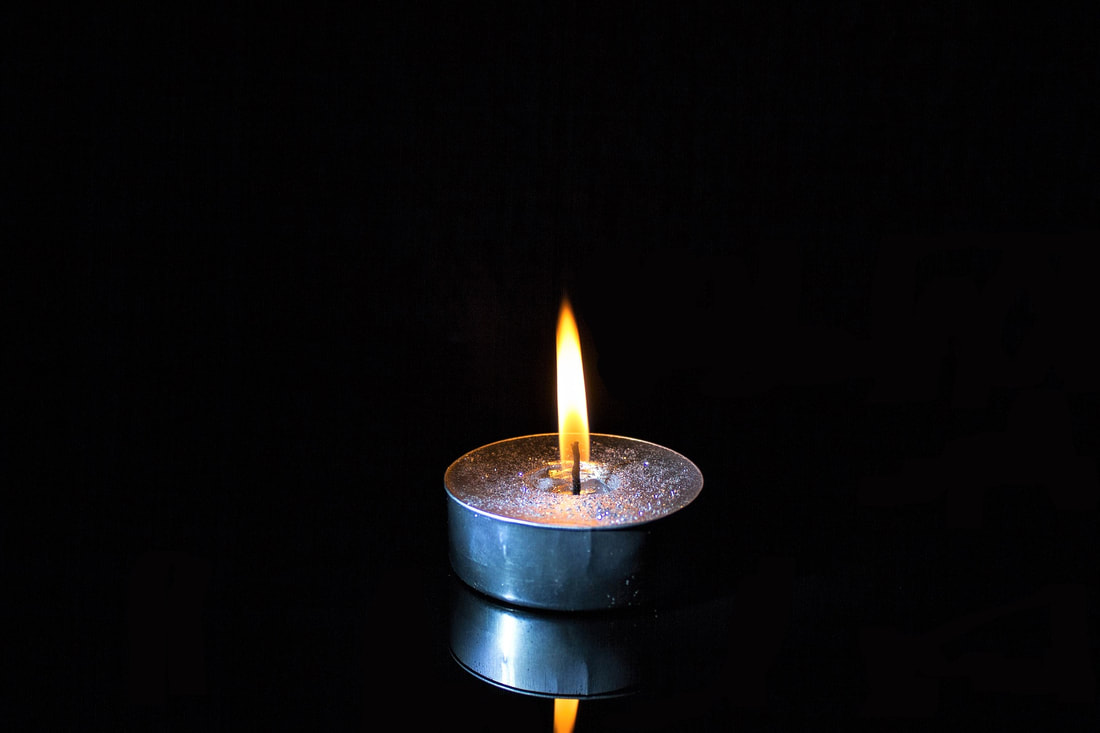|
It strikes me that the holidays are as good a time as ever to talk about grief, and the holidays of 2020? Lordy, pull up a chair.
So many of us are experiencing the existential willies right now for obvious reasons, yet the loss of homes due to the growing climate disaster and loss of lives due to the pandemic mean an unfathomable amount of our literal and figurative neighbors are drowning in overwhelming pain right now. And I’ve learned the best thing we can do for pain is, first and foremost, acknowledge its existence. When going through our own acute pain of losing my health and then losing our home and belongings, hubby and I learned firsthand which responses from others helped, and which responses left us with an even greater loneliness. It’s worth noting that no one fully knows what to do with grief--our own or each others’--unless we’re shown. In the larger cultural pushes toward militant optimism--also known as toxic positivity--we all are encouraged away from acknowledging our wounds. We’re told to just get over it, or look on the bright side; we’re told to use the experience to springboard into a better life, or get busy creating a new reality. This would be great if such advice actually worked, but with complex or early grief, it rarely does. In that spirit, I thought I’d offer some of what I’ve learned both as a therapist and grief survivor about the helpful (and less helpful) things to say to someone who is tossed about by acute loss. First off, please, please say *something*. Even if it’s awkward, bumbling, and brief, your effort will be noted and appreciated. Don’t assume the grieving person knows you care without you saying so, or would be bothered by you acknowledging the loss. When a family member, friend, or coworker has lost something precious (their loved one, their home, their health, their pregnancy) and they know you know, your silence would be deafening. If you don’t know what to say, try this: “I don’t know what to say… But I want to say something.” “I’ve heard. I’m so sorry.” “I can’t imagine what you’re going through, but I’m here if you want to talk.” “I care about you.” Once we open the conversation, we may notice the urge to try and cheer the grieving person up. But if we investigate this impulse, we often find it springs out of our discomfort feeling our own pain. But I promise you, it’s safe to allow ourselves the occasion to feel our own heartbreak; the grieving person is handing you an invitation to not turn away. So before saying the following: “God/ Universe/ Source has a bigger plan,” or “Everything happens for a reason,” or “You can always find another spouse/have another child/rebuild a better home,” we can instead pause and try to empathize for another moment or two or hundred. While these statements of faith may eventually prove true (I think few of us ever fully see the big big picture), and can feel comforting when someone arrives to these conclusions for their life on their own, they rarely comfort when lobbed toward someone freshly devastated. What’s more, they run the risk of dismissing someone’s pain, and may send the message that they should not indulge in so-called “negative” (read: difficult) emotions. Not only are fear, anger, sadness, shock, etc normal responses to loss, they will often hang around longer for anyone who feels it isn’t okay to feel or talk about them. And there is no spiritual wisdom in dismissing heartbreak, believe me. Long story short, we need to first witness, meet, and hold space for each other in our full human emotional messiness. There will be time to harvest any silver linings later; as David Kessler asserts, finding meaning is the sixth stage of grieving--meaning a whole lotta other feelings come first, or at least come alongside. If the ideas in this post are helpful, let me know, and feel free to share. I’d like to write a little series of posts on grief over the next month, getting more in depth about how to greet the grieving, and more on concrete ways to help. This collective storm will be more survivable if we all get darn good at helping each other through it.
3 Comments
Kristin
11/29/2020 04:36:49 am
Hi Teri,
Reply
Stephanie Agosta
12/29/2020 12:38:11 pm
Just found you through Brian's Grief to Growth podcast. Please write more about grief and challenging the New Age thinking. You are much more convincing than most anyone I've heard in a long time. Steph
Reply
1/5/2021 06:43:45 pm
I just started your book, not sure how it came to be in my hands- but I love it. I am also a therapist. I just wanted to say hello.
Reply
Your comment will be posted after it is approved.
Leave a Reply. |
Archives
September 2021
Categories
All
|


 RSS Feed
RSS Feed